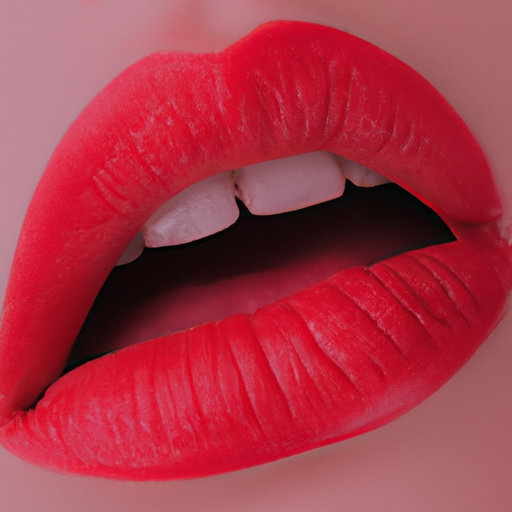As a medical professional, I am often asked about the causes of common ailments, one of which is chapped lips. This condition, characterized by dry, flaky, and sometimes painful lips, is a frequent concern among patients, especially during the colder months. However, chapped lips can occur at any time of the year and may be caused by a variety of factors, some of which are not so obvious. Let’s delve into the mystery behind your chapped lips.
Firstly, it’s important to understand that our lips are particularly vulnerable to drying out because they lack oil glands. This means they can’t produce their own moisture like other parts of our skin can. Therefore, external factors play a significant role in causing chapped lips.
The most common culprit is weather. Cold, dry air can lead to dehydration of the lips, resulting in chapping. Similarly, exposure to harsh winds or excessive sun can also cause your lips to dry out. However, these are not the only environmental factors to consider. Central heating during winter, air conditioning in summer, and even frequent air travel can all contribute to dry lips due to low humidity levels.
Dehydration and poor nutrition are internal factors that can lead to chapped lips. Not drinking enough water can cause your body, including your lips, to dry out. Similarly, a diet lacking essential vitamins and minerals, particularly B vitamins, can also contribute to this condition.
Certain behaviors can exacerbate the problem. For instance, licking your lips may seem like a good way to moisten them, but it actually worsens the situation. Saliva evaporates quickly, leaving your lips drier than before. Additionally, it contains enzymes that can break down the protective barrier of the skin on your lips.
Medical conditions and medications can also be hidden causes behind chapped lips. Conditions like diabetes, hypothyroidism, and certain skin disorders can lead to dryness throughout the body, including the lips. Some medications, particularly those for acne, high blood pressure, and allergies, can also cause dryness as a side effect.
Lastly, an often overlooked cause is allergic reactions. Certain lip balms, toothpastes, foods, or beverages can cause an allergic reaction leading to chapped lips. This is known as allergic contact cheilitis. If your lips are persistently chapped despite your best efforts, it might be worth considering if you’re having an allergic reaction to something you’re coming into contact with regularly.
In conclusion, the causes of chapped lips are multifaceted and can range from environmental factors to underlying medical conditions. It’s important to stay hydrated, maintain a balanced diet, protect your lips from harsh weather conditions, and avoid lip-licking. However, if your chapped lips persist despite these measures, it’s advisable to seek medical advice. Persistent chapped lips could be a sign of an underlying health issue that needs to be addressed.
Remember, your lips are a visible part of your body that can indicate your overall health status. Taking care of them is not just about maintaining a pleasant appearance, but also about ensuring your overall well-being.



